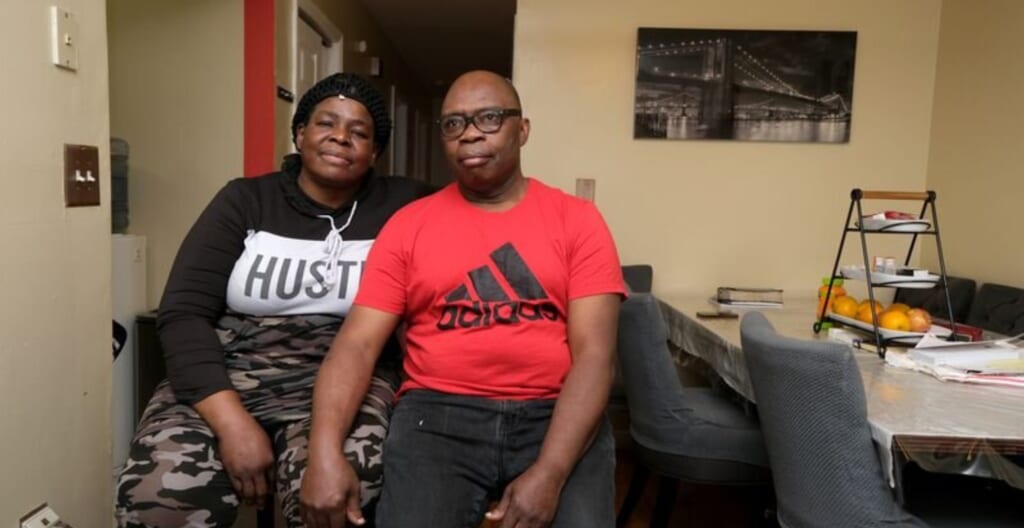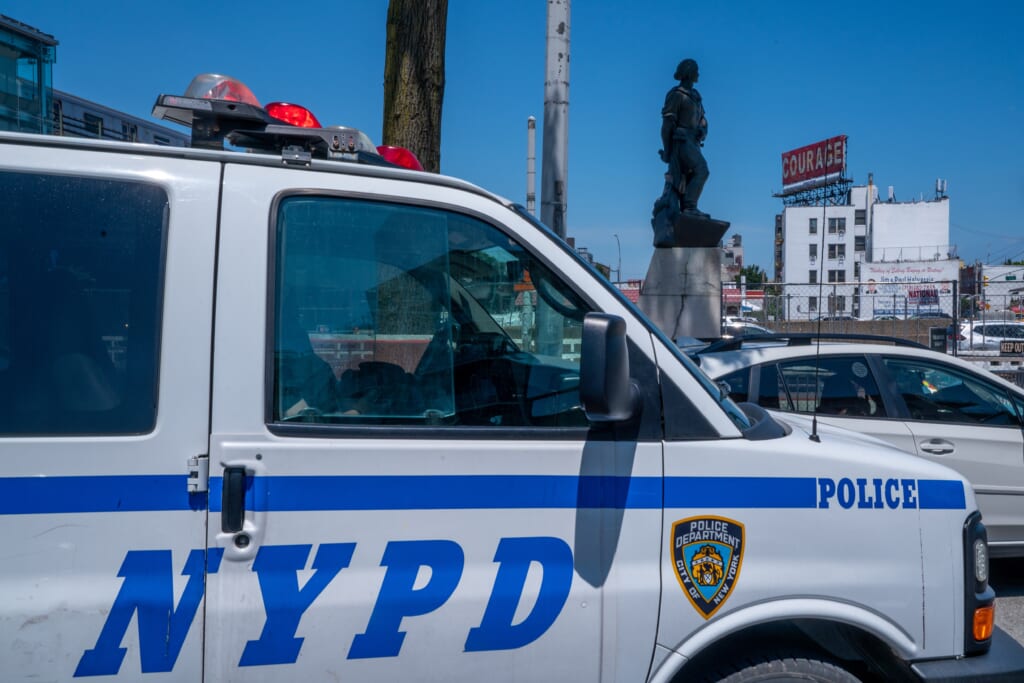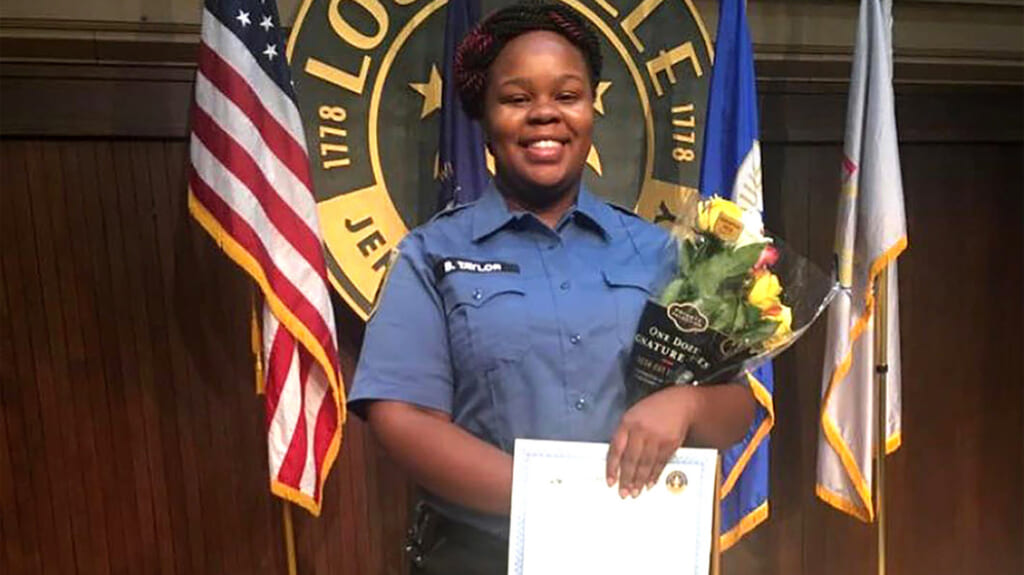NYPD officer accused of abuse in no-knock raid cleared by agency
Isaac Okoli claimed police planted drugs during the incident and has filed a lawsuit against the city and the NYPD
A New York Police Department officer has been cleared of abuse claims after a no-knock raid went wrong.
Read More: Letter says NYPD cop played a role in Malcolm X’s death, daughter says it’s a fake
The Daily News reported Isaac Okoli claimed police planted drugs during the incident and has filed a lawsuit against the city and the department. NYPD Det. Lawrence Avvenire was cleared of wrongdoing by the Civilian Complaint Review Board (CCRB) after he was accused of abusing his authority in the December 2017 raid. According to the report, the NYPD did not share with the CCRB the botched no-knock raid targeted the wrong apartment due to a clerical paperwork error.
Okoli, now 63-years-old, said the police planted cocaine and arrested him during the raid although he and his family believed it was obvious to law enforcement they were at the wrong address. The criminal charges against Okoli were dropped before he saw a judge. The family has filed a lawsuit against New York City and the NYPD for the raid which has resulted in them moving out of their residence due to trauma.

An NYPD spokesperson informed the Daily News, wrong door raids “extremely rare.” However, police could not explain why the department did not provide CCRB with the original warrant affidavit that showed police were looking for a 30-year-old cocaine dealer at the building next door to the Okoli family. They only provided the actual warrant used which had the wrong address.
A CCRB spokesperson said the watchdog organization is working to obtain access to sealed police records, where the warrant affadavit’s are usually filed.
“This is just one example of the type of evidence which the CCRB is often denied because it does not have adequate access to relevant records,” the spokesman said.
The Okoli family’s lawyer, Rehan Nazrali, was able to view the affidavit after he filed a Freedom of Information Law request. He believes the NYHPD intentionally hid the fact they were at the wrong address from the CCRB.

“They took advantage of the opportunity to game the system and act with impunity,” Nazrali said. “It says, we know how to beat the system.”
Read More: Fired NYPD discrimination investigator shared racist rants online, records show
According to The Guardian, there have been nationwide calls to ban no-knock warrants in the year since 26-year-old Breonna Taylor was fatally shot when Lousiville, KY officers executed a botched raid in her apartment in 2020. In August 2020, Lashrecse Aird— a Democratic member of Virginia’s house of delegates –introduced legislation in the state that would ban the operations from being allowed to take place.
The outlet reported according to Campaign Zero, at least 23 cities and 27 states are now considering similar legislation. Before 2020, Oregon and Florida were the only two states that banned or restricted no-knock warrants and a handful of cities.
“I’ve witnessed first-hand officers showing up at a home or family members being arrested,” Aird said to The Guardian. “As a mother, and as a Black woman only a few years older than Taylor, the death of the young medical worker felt “deeply personal”.

CNN reported Virginia Gov. Ralph Northam signed the legislation to ban no-knock warrants in October 2020, as well as other police reform efforts.
“These reforms also reduce militarization of police equipment, standardize law enforcement training requirements, and strengthens the process to de-certify officers, when needed,” Northam said according to the report.”I want to sincerely thank our legislators and all advocates who have worked so hard to reform our criminal justice laws so we can keep Virginia safer and rebuild trust between our law enforcement and the communities that they serve.”
In March, House Democrats passed the George Floyd Justice in Policing Act with the support of President Joe Biden. theGrio reported legislation, which was first approved last summer but stalled in the Senate, was named in honor of Floyd, whose killing by police in Minnesota last Memorial Day sparked protests nationwide. The bill would ban chokeholds and “qualified immunity” for law enforcement and create national standards for policing in a bid to bolster accountability.
According to the House Committee on the Judiciary the act also effectively banned no-knock warrants. A fact sheet on the legislation stated, the George Floyd act “bans no-knock warrants in drug cases at the federal level and conditions law enforcement funding for state and local governments banning no-knock warrants at the local and state level.”
theGrio reported the act faced criticism from activists although supported by lawyers of families who are victims of police violence.

“Over this summer, communities lifted up solutions that would truly address the root causes of police violence and terror,” the Movement for Black Lives wrote in a letter addressed to the chairman of the House Judiciary Committee, Rep. Jerry Nadler, D-N.Y., and to Reps. Sheila Jackson Lee, D-Texas, and Karen Bass, D-Calif., and Sen. Cory Booker, D-N.J. shared in March. “Justice in Policing, by its very name, centers investments in policing rather than what should be front and center — upfront investments in communities and people.”
The movement said that while it does support the end of qualified immunity, which shields law enforcement from certain lawsuits, it believes the bill in its current form focuses on reactive measures and “incrementalist reforms.”
Instead, the movement is pushing political leaders to enact the BREATHE Act, which it proposed last July and believes addresses the fundamental causes of police violence.
“It’s not just about after the fact accountability,” said Gina Clayton-Johnson, the lead BREATHE Act architect and leadership team member of the Movement for Black Lives’ Policy Table. “There’s this thought that Black people are dying at the hands of police officers because individual officers are bad actors, but it is actually a systemic issue, and if you understand it to be systemic, then the solutions must also be systemic.”
This article contains additional reporting from theGrio’s Associated Press.
Have you subscribed to theGrio’s podcast “Dear Culture”? Download our newest episodes now!
TheGrio is now on Apple TV, Amazon Fire, and Roku. Download theGrio today!
More About:News









